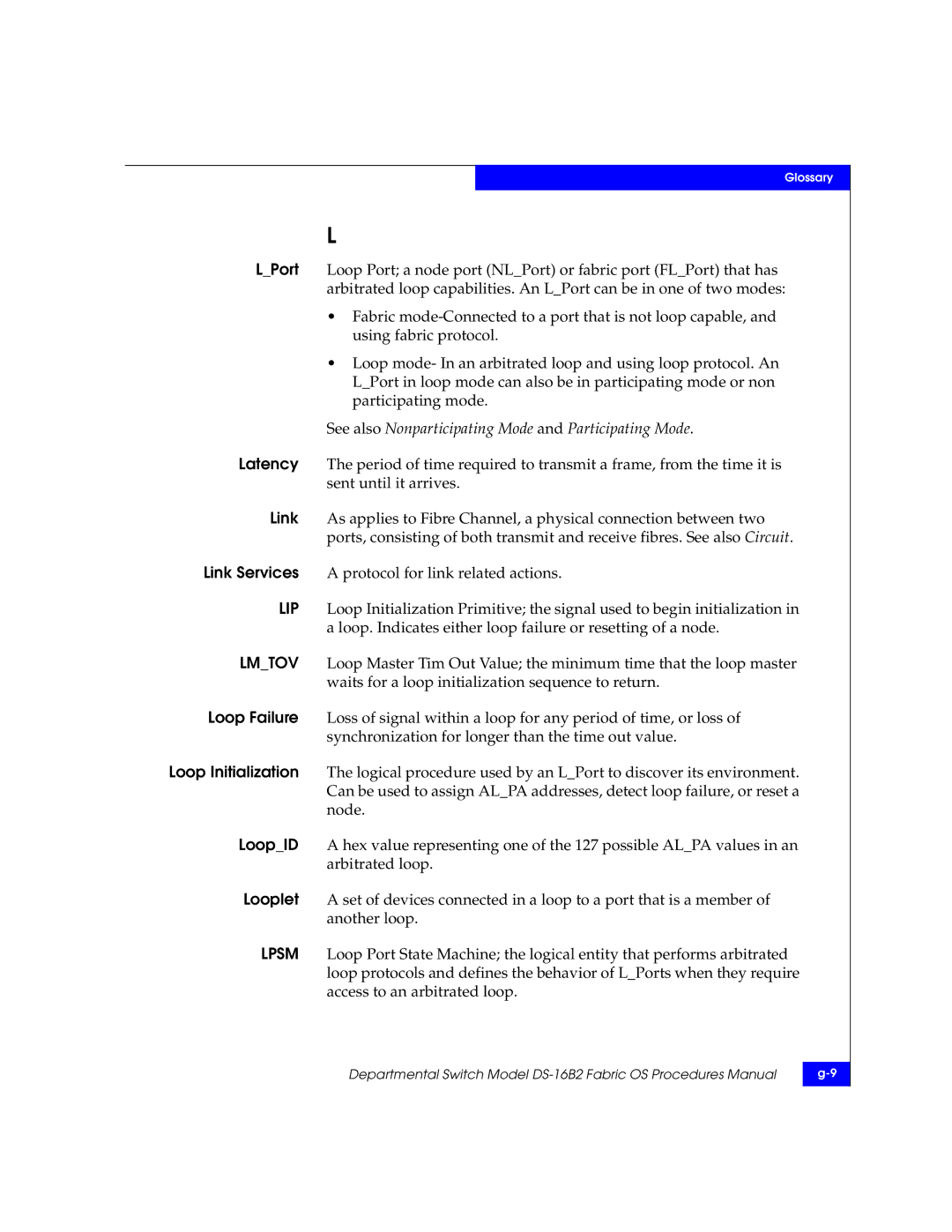
Glossary
L
L_Port Loop Port; a node port (NL_Port) or fabric port (FL_Port) that has arbitrated loop capabilities. An L_Port can be in one of two modes:
•Fabric
•Loop mode- In an arbitrated loop and using loop protocol. An L_Port in loop mode can also be in participating mode or non participating mode.
See also Nonparticipating Mode and Participating Mode.
Latency The period of time required to transmit a frame, from the time it is sent until it arrives.
Link As applies to Fibre Channel, a physical connection between two ports, consisting of both transmit and receive fibres. See also Circuit.
Link Services A protocol for link related actions.
LIP Loop Initialization Primitive; the signal used to begin initialization in a loop. Indicates either loop failure or resetting of a node.
LM_TOV Loop Master Tim Out Value; the minimum time that the loop master waits for a loop initialization sequence to return.
Loop Failure Loss of signal within a loop for any period of time, or loss of synchronization for longer than the time out value.
Loop Initialization The logical procedure used by an L_Port to discover its environment. Can be used to assign AL_PA addresses, detect loop failure, or reset a node.
Loop_ID A hex value representing one of the 127 possible AL_PA values in an arbitrated loop.
Looplet A set of devices connected in a loop to a port that is a member of another loop.
LPSM Loop Port State Machine; the logical entity that performs arbitrated loop protocols and defines the behavior of L_Ports when they require access to an arbitrated loop.
Departmental Switch Model
